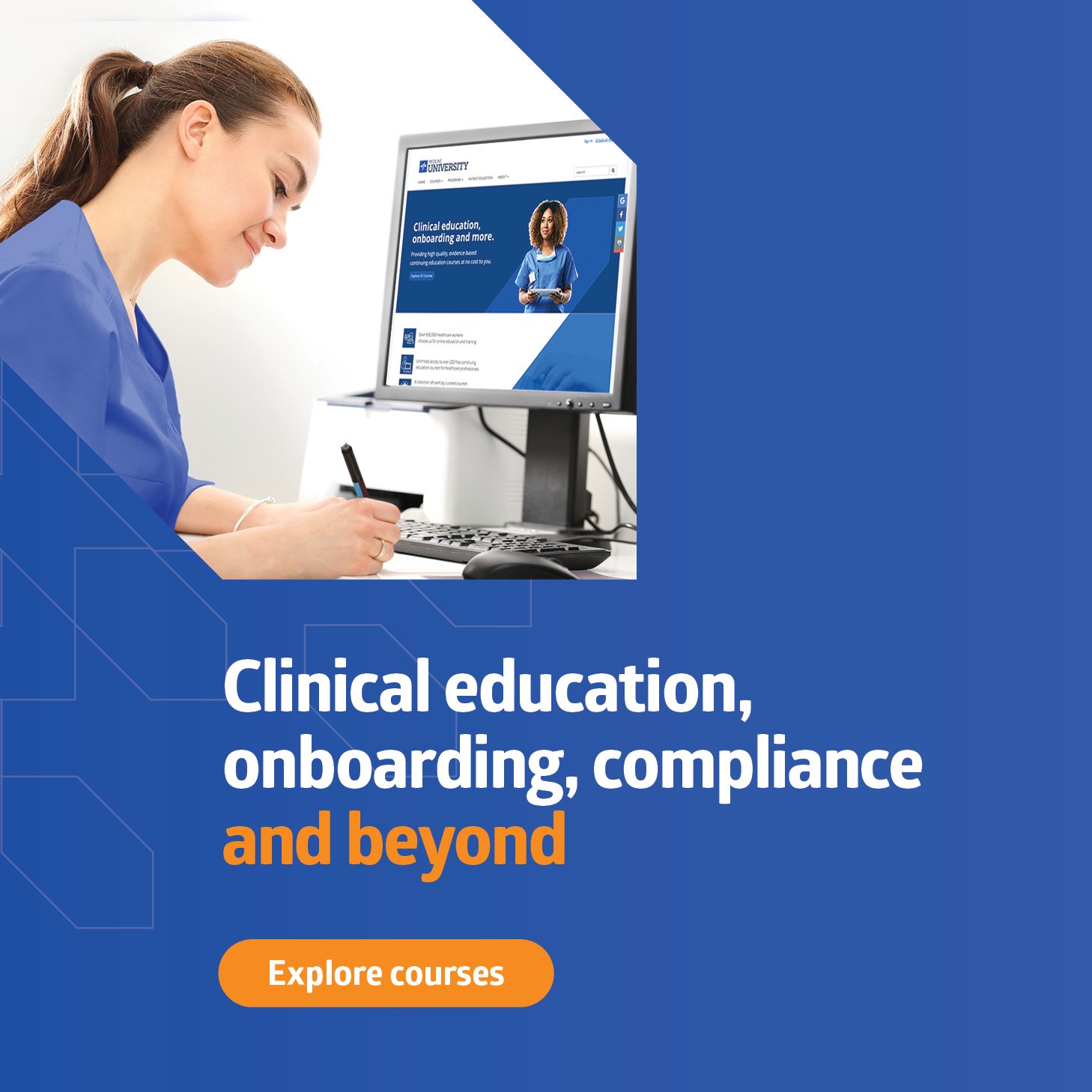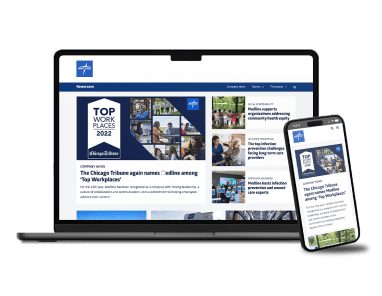The role of workforce education in retaining and attracting healthcare staff

Ongoing training improves staff engagement and morale, optimizes patient care
By Medline Newsroom Staff | April 6, 2022
Unrelenting frontline care during the pandemic has elevated cases of burnout and staff turnover at healthcare organizations across the country. Healthcare resignations are among the highest in the country. To curb this trend, many healthcare leaders are investing in workforce education. According to a STAT News article, this includes leadership at the largest health systems in South Carolina and Illinois, with both organizations recently establishing nurse residency programs or partnering with colleges to accelerate training.
“The workforce shortage has been an issue for quite some time and while we need to figure out how to get new staff in the door, healthcare leaders need to focus on initiatives that engage their current staff, and ultimately, close that back door to keep them with the organization. We need to help make them more effective and efficient in their daily tasks,” said Shawn Scott, vice president of strategic business development for Medline’s Post-Acute Care division.
Enhancing online learning
In the annual McKnight’s Mood of the Market Survey, “more training or learning opportunities” ranked among the most important factors for personal workplace satisfaction, right after “more staff” and “better compensation.” Continued education through online learning platforms is a convenient way for staff to participate when and where it works best for them. For more than 15 years, Medline has offered over 200 free continuing education (CE) courses to healthcare professionals through its online platform, Medline University. The increased industry interest in online learning led to a 30% year-over-year growth in average monthly unique users in 2021. This year, Medline University is developing a portfolio of new courses to address self-care for nurses, telehealth and workplace violence/incivility in nursing, and is also making updates to existing courses around elder abuse, battling the painkiller addition epidemic, nutrition’s role in urinary tract infections, and knowledge of dementia disorders for healthcare assistants.
To further enhance online learning opportunities, Medline also launched a partnership in 2019 with HealthStream, a leader in workforce development and quality improvement solutions. The partnership offers a range of workforce development and quality improvement programs to help long-term care providers, including skilled nursing facilities, assisted living, and home health and hospice organizations, meet changing regulatory requirements in their state.
“The strategic alliance has helped us tap into the experts at HealthStream and leverage their regulatory experience to help our long-term care customers expand the knowledge of their staff. It continues to elevate our partnership with customers to be more than just a supplies vendor and help them develop a competent workforce,” added Scott.
Since the alliance launched in 2019, Medline and HealthStream have continued to gain momentum with customers. Of the six software solutions Medline offers to tackle timely workforce and quality management challenges, HealthStream contracts accounted for more than 30% of total Medline contracts signed in 2021. This includes providers like Caregiver, Inc., which uses HealthStream at nearly 100 skilled nursing facilities across five states, and Shepherd Premier Senior Living, a Midwest-based boutique-style assisted living organization with six facilities.
Elevating skin health practice
More healthcare providers are focused on skin health and leveraging education to empower staff and drive standardization of care, including long-term care providers PruittHealth and Guardian Healthcare.
With the help of Medline’s clinical support team, Guardian Healthcare created traveling skills fairs to bring educators directly to staff and help them provide a holistic approach to skin care. The fairs incorporate expert guidance on correct product usage to help standardize care and offer best practice training on issues that can impact skin health, such as off-loading and infection control.
“The staffing crisis has made it difficult for organizations to focus on basic nursing activities. Our goal is to simplify skin health management by helping our customers create an environment of staff empowerment fueled with knowledge around skin and wound care,” said Amin Setoodeh, senior vice president of skin health and clinical services for Medline.
To advance skin health education opportunities in 2022, Medline is hosting boot camps and workshops to empower frontline caregivers on skin health best practices and drive standardization of care. These education opportunities include compression workshops for wound centers to help enhance best practices for applying compression therapy, and a variety of half-day boot camp series for post-acute care providers of all experience levels that focus on anatomy and physiology of the skin, staging of pressure injuries, lower extremity ulcers, factors affecting wound healing, among other essential topics.
Learn more about how Medline is helping advance online continuing education for healthcare providers.
Medline Newsroom Staff
Medline Newsroom Staff
Medline's newsroom staff researches and reports on the latest news and trends in healthcare.

